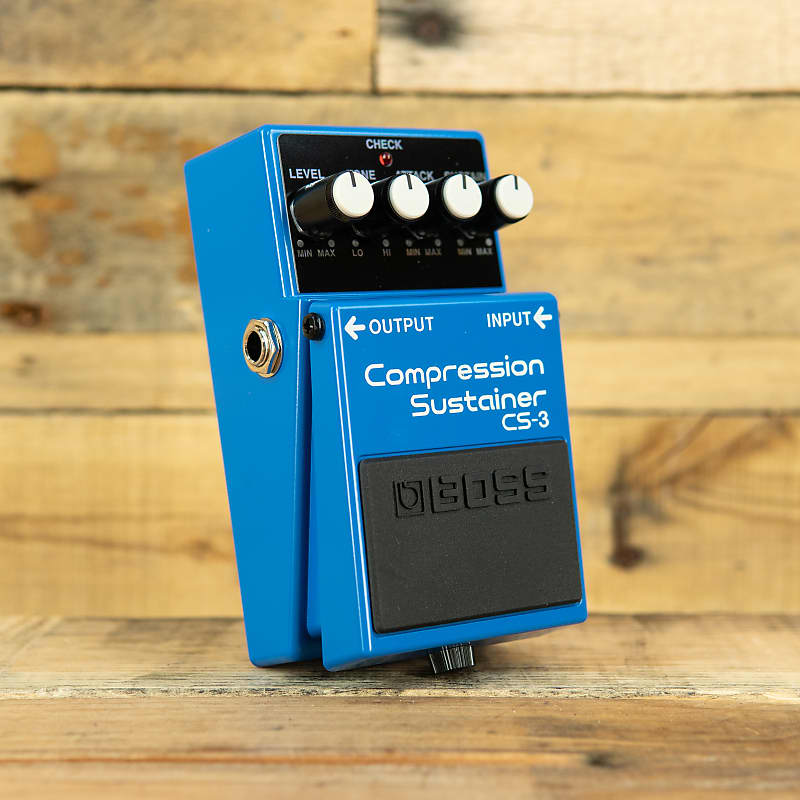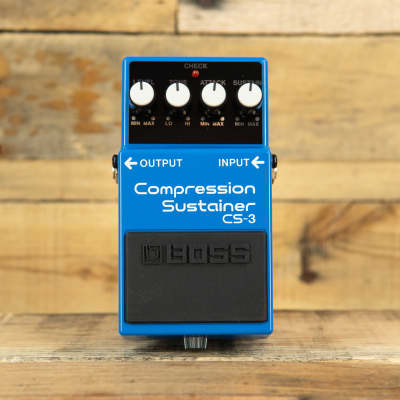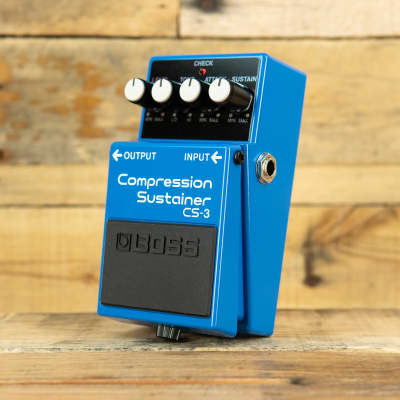




Boss CS-3 Compression Sustainer
Price$119.99
Free Shipping
Free Shipping
from Joplin, MO
Listed:over a month ago
Views:461
Watchers:9
Offers:3

Joplin, MO, United States
14-Day Return Policy
Enjoy peace of mind with your new gear





In early 1970s, the Ross Compressor and MXR Dyna Comp brought compression out of the studio and made them part of guitarists' live rigs. In 1978, Boss jumped on board with the CS-1, which quickly gave way to the CS-2 in 1981 and eventually the CS-3 in 1986, which remains in production today as the company's proven bread-and-butter compressor. If there is bright, hip center to the boutique pedal movement, Boss is the company farthest from it. Simplicity, durability and practicality trump clever names, bold claims and hand-painted casings when it comes Boss' design philosophy, and nowhere is that common sense more important than in a good compressor.
When you pay for a compression pedal, you're usually paying money for something very subtle and sometimes hard to notice. You want it to its job without announcing itself most of the time, and the Boss CS-3 can be massaged into subtlety when turned down. But it really shines when you ask to squeeze the signal as hard as it can, resulting in the snappy, impeccably crisp sound heard on so many country and funk recordings. For this reason, the CS-3 is a perennial favorite among chicken pickers, funk all-stars and jam band soloists.
| Condition | |
| Brand | |
| Model |
|
| Finish |
|
| Categories |